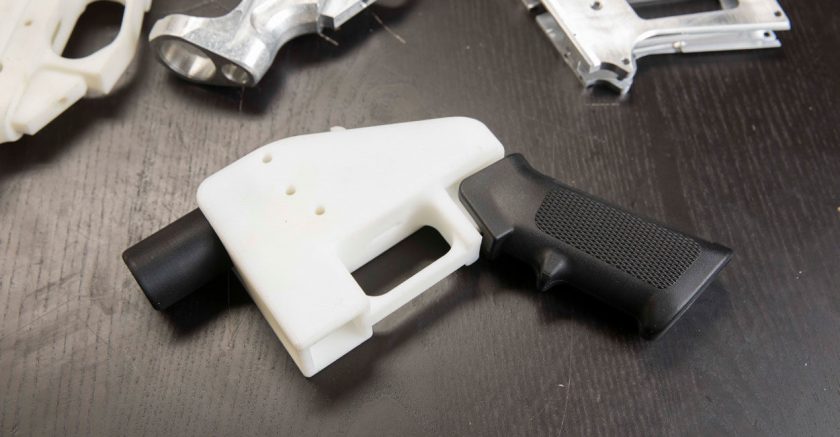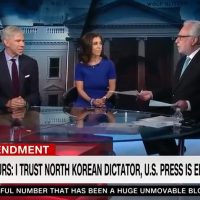The newest bugaboo of the gun control crowd is the bloodcurdling “3D printer gun”—or, as anti-gun activist Alyssa Milano called it, “downloadable death.”
Reporters at CNN now ask, “3D guns: Untraceable, undetectable and unstoppable?” Even President Donald Trump tweeted that he’s “looking into 3-D Plastic Guns being sold to the public. Already spoke to NRA, doesn’t seem to make much sense!”
It makes plenty of sense.
First of all, 3D plastic guns aren’t being sold to the public. Neither are “downloadable firearms” or “ghost guns.” These things don’t exist. Data, code, and information are being sold to the public. There is no magical contraption that creates a new gun on demand. Sorry.
Even if such a machine existed, however, the Trump administration hasn’t suddenly begun “allowing” Americans to fabricate guns in the comfort of their homes as so many stories have intimated. It’s never been illegal to make your own firearms in the first place.
The pretext for this freakout is news that the State Department reached a settlement with Cody Wilson and his company, Defense Distributed, which offered digital designs for 3D printed guns, not guns. The Obama administration had maintained that the company’s printer code violated the International Traffic in Arms Regulations, which had little to do with a law-abiding hobbyist milling a lower receiver for a commercially popular civilian firearm in his suburban Pennsylvania garage.
Milano may not be aware that Americans have been building their own three-dimensional guns since before the revolution. Today life has become far more convenient, and schematics that offer hobbyists plans for assembly or creation of firearms can be found across the internet.
Although people might need a high degree of proficiency to pull off making one, they certainly don’t need a 3D printer. One seven-part video on YouTube features an industrious fellow turning hundreds of cans of Pabst Blue Ribbon into an AR-15.
Still, Milano contends that the administration’s decision now means that “felons, domestic abusers, terrorists, those adjudicated too mentally ill to own guns and any other person unable to legally purchase firearms will be able to print one at home.”
Guess what. If you’re unable to legally purchase firearms, you are already prohibited from making a gun in your home, just as you are prohibited from buying a gun through a straw purchase or stealing one from your neighbor or smuggling one into the country. That’s settled law. Good work.
Censoring code on the internet simply because you find guns objectionable, though, is another story. As Wilson told The Washington Post, code “is the essence of expression. It meets all the requirements of speech—it’s artistic and political, you can manipulate it, and it needs human involvement to become other things.”
Read the full story from The Daily Signal
Want more BFT? Leave us a voicemail on our page or follow us on Twitter @BFT_Podcast and Facebook @BluntForceTruthPodcast. We want to hear from you! There’s no better place to get the #BluntForceTruth.







